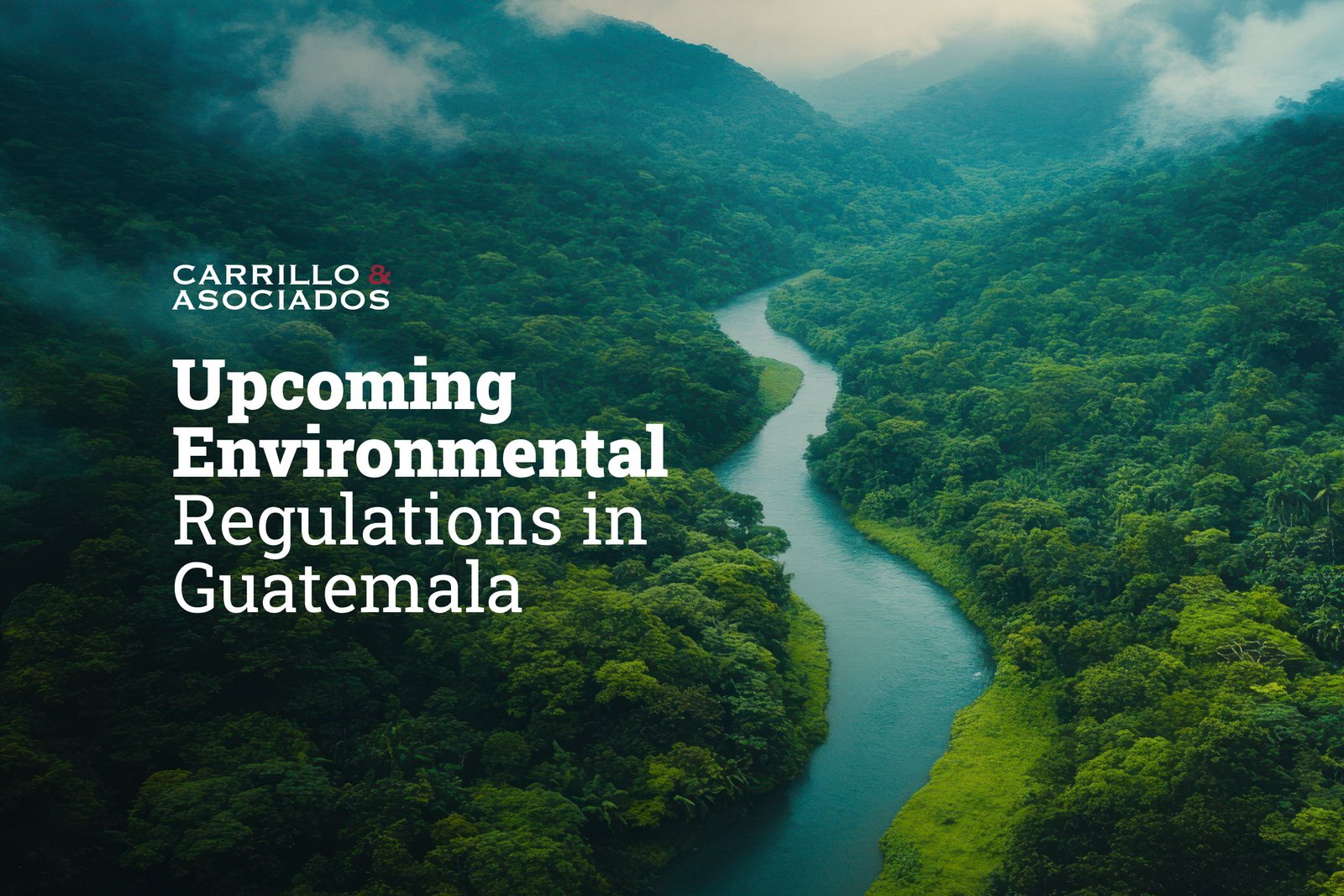
Guatemala is in the top 10 most vulnerable countries to the effects of climate change. Extreme weather events, along with rapid deforestation, water pollution and soil degradation, compromise the quality of life and key economic activities in the country. But these threats are not limited to one region; they are challenges the whole world is facing.
In the business world, these issues present opportunities for innovation and growth. At the same time, companies must anticipate the development of new environmental regulations and public policies that seek to promote sustainability and impact their operations.
Trends in Environmental Public Policy
Wanting Environmental Performance Index, which measures the performance of 180 countries in areas such as the vitality of their ecosystems, environmental health and combating climate change. It ranks Guatemala 166th. Aspects such as poor solid waste and sewage management, air and water pollution, and inadequate protection of vulnerable species have had the greatest impact on the country's score.
In view of this situation, the current administration has included in its government plan a series of policies and initiatives aimed at mitigating the effects of climate change and protecting the environment. Some of the most relevant proposals are detailed below:
1. Creation of the National Green Fund
The National Association of Municipalities (Anam) has promoted the Green Fund Law (Initiative 6404). This consists of creating a state fund that will help finance municipal projects such as the construction of solid waste management centers, blackwater treatment centers, and sewage systems, among others.
The proposal responds to the economic difficulties of municipalities to carry out these projects and comply with current regulations.
2. Reforms to Current Environmental Legislation
Initiative 6370 proposes amendments to the Environmental Protection and Improvement Law (Decree 68-86), which regulates requirements such as environmental licenses and environmental impact studies.
The proposal seeks to ensure good environmental practices without hindering economic and social development. To this end, it simplifies the current system by differentiating environmental impact studies and/or mitigation measures according to the scale of the projects.
The Minister of Environment (MARN), Patricia Orantes, announced that the Ministry is working on a new Regulation for Environmental Evaluation, Control and Monitoring, which governs the granting of environmental licenses to companies. At the time of publication, MARN has not provided any further information
3. Designing a Water Law
On August 9, 2024, the government created the Water Cabinet to coordinate efforts towards a better management of the water crisis facing the country. Minister Orantes emphasized that this is an important first step to better address our water resources.
On August 29, President Bernardo Arévalo and Minister Orantes announced the start of a dialogue process with economic and social actors to elaborate a proposal for a Water Law. On September 18, they will begin meetings with indigenous authorities, mayors and other users. It is expected that they will present the initiative to Congress in 2025.
4. Investments in Protection Systems
President Arevalo's government plans to invest approximately US$900 million in forests and protected areas, watershed restoration, and strengthening the Probosques program. The latter consists of encouraging the conservation of private forests and/or creating sustainable productive forest plantations.
5. Strengthening of Communities
Support for the collective management of land, rivers and forests of local populations, such as the communal forest management model in the indigenous communities of Totonicapán, is a priority. The people of Parcialidad Baquiax have designated forest rangers to monitor the use of firewood and water to ensure their sustainable use in the villages.
Additionally, the Guatemalan Tourism Institute (Inguat) is making efforts to promote community-based tourism. This plan seeks to promote economic development in more communities with sustainable activities.
Guatemala's International Commitments
In addition to the proposals, Guatemala is a signatory to international conventions focused on environmental protection and climate change mitigation.
In 2015, the Paris Agreement laid the groundwork for more ambitious efforts to reduce greenhouse gas emissions and prevent the Earth's temperature from rising more than 1.5 degrees Celsius over the course of the 21st century.
Building on this agreement, the United Nations Climate Change Conference (COP28), held in 2023, concluded with action plans for 2030. For example, 31 countries will donate around US$12.8 billion to the Green Climate Fund (GCF), which will provide resources to developing countries to improve their environmental resilience and accelerate their transition to greener economies.
The effects of these agreements can already be seen in Guatemala. New tenders for electricity generation will prioritize renewable sources such as green hydrogen. In addition, the current administration has a good relationship with the international community and an environmental agenda, so new initiatives and public policies are likely to emerge in the coming years.
Recommendations
To anticipate these global trends, there are several actions your organization can take to adapt and mitigate future risks:
- Sustainable Investments: Prioritize investing in green technologies and sustainable practices that support natural resource protection and align with environmental restoration policies. For example, using fossil fuels in your operations may be cheaper in the short term, but in the long run you risk coming under scrutiny from new government policies.
- Community Strengthening: Working with local and indigenous communities can generate mutual benefits, such as the development of ecotourism and reforestation projects. In addition, this step is important for managing potential conflicts over important resources such as water and land.
- Regulatory Compliance and Certifications: Compliance with the law is important not only to avoid possible sanctions, but also to have access to environmental certifications that position your brand in a market that demands greener business models.
- Active Involvement: Take advantage of opportunities to participate in environmental decision-making and maintain constant communication with authorities and communities about business activities that may have an impact on their environment.
In this context of regulatory changes and increased scrutiny, it is crucial that your company not only complies with new regulations, but also becomes a leader in sustainable practices.
If you have any questions or require more information, we are at your disposal.

